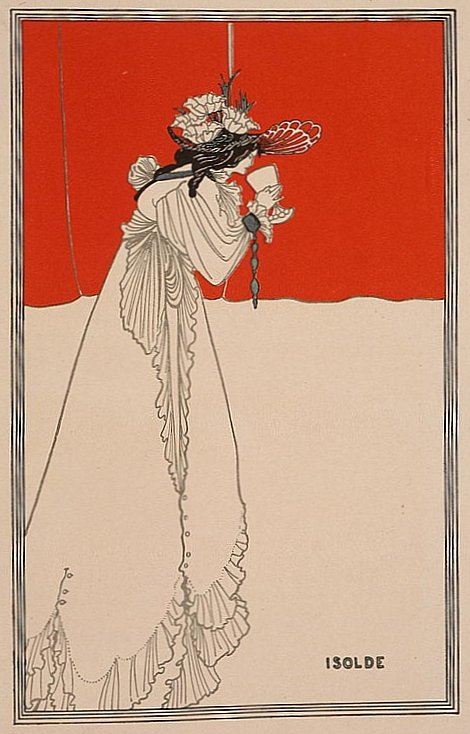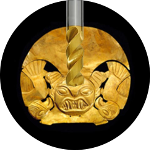Liebestod - lovedeath

Inspired by @Elumni's fine historic posts, especially this one, and all the talks about quality and pornography and stuff, I thought it would be funny to just mention some fine art, erotic sleaze, peak of human creation... Tristan and Isolde by Richard Wagner.
Just very short. The opera is based on a celtic myth popular in French mediaeval romances and opens with the Famous Tristan Chord the first fullblown example of atonality in European music, anticipating the twisted, strange love of the antagonists in one of the most important musical pieces ever written. Listen to it right away:
Tristan a Cornish Prince and Isolde an Irish Princess are on a large war-wessel - she is a prisoner of war and are to be brought to the Cornish king to be weed to him - she hates everyone on the boat, but none more that Tristan who have killed her Brother. But by the strange twists of fate she drinks a love-potion and fall madly in love with... Tristan, and again the twisted, wistful tristan-chord rise up in the music as a sign of the adulterous, wrong and actually quite unromantic and unidealistic love - a physical, sexual love induced by unnatural magic means. Sex, drugs and symphonic orchestra.
As the love story progresses it becomes obvious to the raving lovers that only in death will their love be fulfilled - sex, drugs, necrophilia and symphonic orchestra... and so it goes. Tristan dies at the feet of Isolde, she faints and dies... but then she suddenly wakes, and almost delirious she sing the very wonderful Liebestod (lovedeath) aria.
You might have to listen to it a couple of times but then you will get goosebumps I promise. The pathos is the size of planet Jupiter. First piano... she wakes - then it builds up in an ecstatic (orgasmic) crescendo and dies out with the heroin(e), ending in the very sick atonal chord that started the whole thing but this time it flows into a harmonious long drawn ending chord. The end of the old world in dubious love death, and the beginning of the materialist, twentieth century. OK, I better just give the links before this gets to pathetic:
First the great Flagstad, the one to judge all other Wagner-singers against:
Then Another Scandinavian diva, Birgit Nilsson
And last a modern version by Nina Stemme. Very impressive performance (not very impressive sound-quality)
And as a fun ending We can see that I am not the only one with goosebumps. Stephen Fry suffers from the same sickness.
